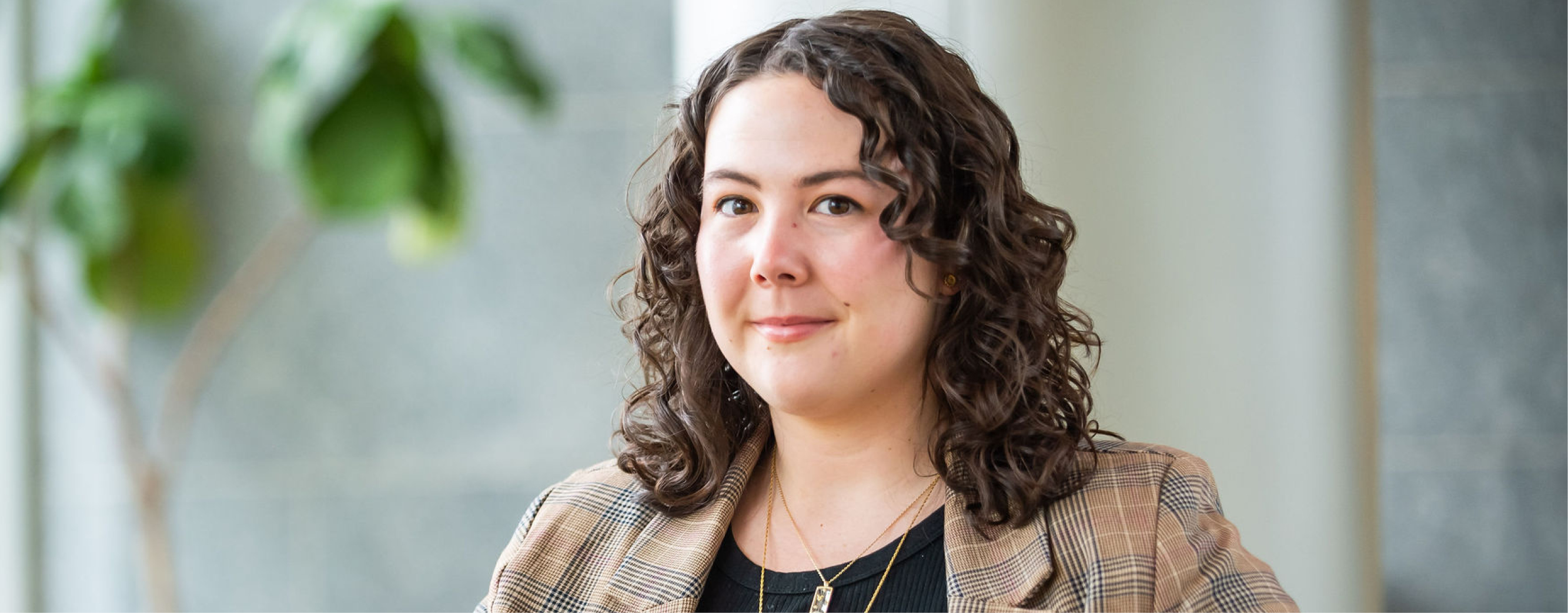Admitted students, confirm your enrollment
Prospective students, learn more

“I view communications as vital to public health research and practice. Messaging and dissemination strategies can make or break the public’s reception of something like an outbreak response or new health policy,” she says. “That is why it is essential to have experts not only working in research, but also in translation and communications!” She adds, “This isn't what I thought I would be doing, but it’s clear that I’m doing what I should be doing. It’s a bonus to know that it’s also something that I love, and I feel like I’m making a difference, too.”
Shelby Crosier’s path toward a career in health communications came about serendipitously. After college at the Ohio State University, a nearly 3-year stint with the Peace Corps in Peru, and a role as a community health worker with American Indian Health & Family Services, Crosier was set on attending graduate school to build the skill set she needed to pursue programmatic work. With a strong natural affinity for writing, communications was an area that piqued her interest— particularly as she watched rampant misinformation take center stage throughout the COVID pandemic. But, she was unsure how to go about it. Fortunately, Rollins was ripe with opportunities for growth and discovery.
“Because I find so many aspects of public health communications interesting and important, I knew that I wanted to develop my health communications skills while at Rollins,” she says. “I have been very fortunate to find opportunities that have allowed me to learn about different aspects of communications, try new things, and have mentorship in the field.”
During her time at Rollins, doors began to open that granted her unique opportunities to explore her interest. As a Rollins Earn and Learn recipient, she got the chance to work on a CDC team as a graduate assistant doing health communications and research translation. A classmate nominated her for communications chair in Rollins Student Government Association, which led to her being tapped by Dean M. Daniele Fallin to serve on the communications working group for the school’s strategic plan. This experience introduced Crosier to the school’s associate dean for communications and editorial director, who hired her as a communications graduate assistant.
Crosier currently works 30 hours a week on staff while she finishes her remaining classes and will move to full time in May. Her role requires her to draw from her MPH training as she translates complicated science into easily digestible information through a variety of formats, including magazine articles, long-form feature stories, news briefs, and more, while giving her opportunities to be creative, innovative, and impactful.
“I view communications as vital to public health research and practice. Messaging and dissemination strategies can make or break the public’s reception of something like an outbreak response or new health policy,” she says. “That is why it is essential to have experts not only working in research, but also in translation and communications!” She adds, “This isn't what I thought I would be doing, but it’s clear that I’m doing what I should be doing. It’s a bonus to know that it’s also something that I love, and I feel like I’m making a difference, too.”
In terms of the return on investment associated with her degree, Crosier notes it has paid dividends. “I was fortunate to receive a fellowship that took care of 50% of my tuition, so I was already paying less than what I would have paid elsewhere. To already have secured a job before graduation is a good return on investment, and it goes beyond the money. I’ve been able to find a career that is stable and that provides me opportunities for fulfillment and growth.”